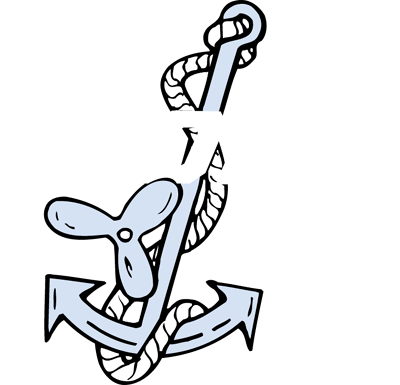Review of Vice Commandant Appeal Decisions of Interest
USCG vs. John C. McCarthy
(App. Dec. No. 2680)(April 8, 2008)
The Vice Commandant affirmed the November 29, 2006 ruling of ALJ Peter Fitzpatrick that the respondent committed negligence and misconduct in piloting a vessel at full speed past an LNG terminal in the Savannah River on March 14, 2006. Among the noteworthy points discussed in this decision are the following:
(1) The Vice Commandant found the term "minimum safe speed" to be synonymous with the term "bare steerageway" (p. 6);
(2) The decision by the pilot to go full speed past the LNG terminal, justified by the pilot on the basis of the channel configuration, was not excused by the Vice Commandant as "error of judgment" because the pilot did have alternatives and therefore need not have elected to make the speed and traffic passage decisions that he did (pp. 7-10);
(3) The Vice Commandant rejected the pilot's argument that "misconduct" was a lesser included offense of "negligence" (a creative concept borrowed from criminal law) even in a situation where, as here, both charges arose from the identical sets of facts (pp. 10-1); and
(4) The Vice Commandant also rejected the pilot's argument that the 8 month suspension was excessive and "impermissibly penal." The pilot based this unsuccessful agrument on the fact that, although his actions resulted in $110K in property damages, the catastrophic EXXON VALDEZ oil spill in Alaska which causedbillions of property damages, resulted in a Coast Guard license suspension of only 1 month longer (p. 12).
Comment And Assessment
This case is further proof that the "comparison to other sanctions" arguments that we all like to make in an effort to mitigate sanctions against our own clients seldom works, at least not at the appellate level. Of some interest, however, is the discussion about the error of judgment argument. This decision would seem to leave open to further discussion a possible application of that argument as a defense to a negligence or misconduct charge in those situations in which, unlike this one, the pilot or licensed officer did not have alternatives or make voluntary decisions that later put him into peril.
USCG vs Christopher J. Dresser
(App. Dec. No. 2679)(April 2, 2008)
This decision was the final administrative appeal of a protracted administrative fight over a 1997 positive drug test, and came after a prior appeal and remand. The respondent, who tested positive for marijuana metabolites, was found to have been a user of dangerous drugs. Some noteworthy aspects of this case for MOPS attorneys are as follows:
(1) In situations in which the case is remanded to a substituted fact finder, the substitute fact finder may conduct a new hearing de novo. When credibility is at issue, testimony from critical witnesses may be re-taken; but the substitute fact finder also has the discretion to rely upon the earlier record for the testimony of non critical witnesses (pp 8-9);
(2) It was not procedural error for the ALJ to adopt almost all of the findings and rulings from the Coast Guard, even though cited case law disapproves of the practice (pp. 16-7);
(3) It was not reversible error for the ALJ to require the respondent to produce corroborating evidence of his testimony in order to rebut the Coast Guard's prima facie case, and the ALJ's practice of doing so did not elevate the respondent's burden of proof from preponderance of evidence to clear and convincing evidence (pp. 17-8); and
(4) Coast Guard S & R hearings are governed by the Administrative Procedures Act, and 33 CFR Part 20, not the Federal Rules of Procedure. The FRCP may be used only to supplement the gaps in the governing statutes or regulations (p.20).
Comment And Assessment.
PP. 8-10 of this decision provide us with a good roadmap for the procedures governing remand hearings, for those few instances in which this might occur. Equally as important, and to be encountered much more frequently, is the reminder this decision gives about the importance of getting before the fact finder as much corroborating evidence as we possibly can as a foundation for making the argument that we have rebutted the Coast Guard's prima facie case, and that the Coast Guard must then bear the burden of coming forward with additional evidence to support its claims.
